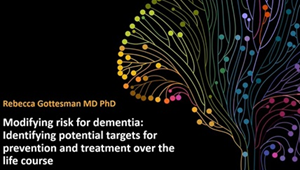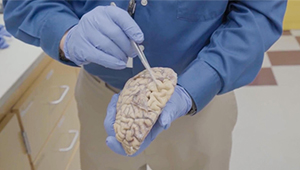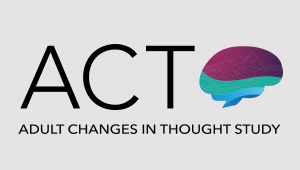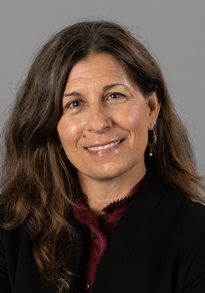Nicole M. Gatto, PhD, MPH
Biography
Nicole Gatto is a principal collaborative scientist at Kaiser Permanente Washington Health Research Institute (KPWHRI), where she predominantly works on the Adult Changes in Thought (ACT) Study examining Alzheimer's disease and related dementias.
Nicole’s research aims to increase our understanding of chronic diseases including neurodegenerative disorders, cardiovascular disease, and cancers. She has studied a broad range of risk and preventive factors including environmental, occupational, lifestyle, physiological, and genetic factors. She has led several funded epidemiologic studies, effectively utilizing data from cross-sectional, case-control, cohort, and experimental studies and applying different analytical approaches in her research. Recently, Nicole completed an investigation in the Adventist Health Study-2 cohort on lifestyle factors in mild cognitive impairment. Additionally, she has experience leading 2 separate diagnostic validation studies of over 600 self-reported Parkinson’s disease cases in the California Teachers Study cohort.
Nicole earned her Master of Public Health from the Fielding School of Public Health at UCLA and her PhD in epidemiology from the Department of Preventive Medicine at the Keck School of Medicine of the University of Southern California. Subsequently, she completed a 3-year post-doctoral fellowship at UCLA in environmental neuroepidemiology as well as a 1-year internship in communicable disease control and prevention at the Los Angeles County Department of Public Health. She holds certifications in public health, SAS, geographical information science, and college teaching.
In 2009, Nicole co-founded the Milagro Allegro Community Garden, a vibrant and thriving community space that integrates urban farming, art, and education in the Highland Park neighborhood of Northeast Los Angeles. In 2010, inspired by Michelle Obama’s “Let’s Move” campaign, Nicole developed, with colleagues, LA Sprouts, a nutrition, cooking, and gardening intervention aimed at reducing the risk of childhood obesity in predominantly Latino elementary school-aged children. From 2012 to 2017, she led the evaluation of the Little Green Fingers project, which constructed 8 community gardens across Los Angeles County.
In 2014, Nicole was a recipient of the Governor’s Environmental and Economic Leadership Award, California’s highest environmental honor. In 2018, she was awarded a Fulbright Specialist grant to teach epidemiology to public health professionals at the National Center of Public Health in Ulaanbaatar, Mongolia. In 2020, Nicole was named a Fulbright Scholar and, during 2021, she taught and conducted research at the University of Iceland in Reykjavik. In 2022, she was awarded a second Fulbright Specialist grant to consult on research and teach environmental health and epidemiology at the University of Cartagena, Colombia.
Nicole has faculty appointments at the University of Southern California and Loma Linda University, among others. She is a member of several professional societies, including the American Public Health Association and the International Society of Environmental Epidemiology. She serves as a reviewer for prominent public health journals, including Environmental Health Perspectives, Journal of the Neurological Sciences, and Public Health Nutrition. She also serves as guest editor for the journals Vaccines and Brain Sciences.
Nicole is inspired by the work of Wangari Maathai, who founded the Green Belt movement in Kenya, and Alice Waters, who created the Edible Schoolyard in Berkeley, California.
Areas of research focus
Recent Publications
Gatto N, Fruend D, Ogata P, Diaz L, Ibarrola A, Desai M, Aspelund T, Gluckstein D. Correlates of coronavirus disease 2019 inpatient mortality at a Southern California community hospital with a predominantly Hispanic/Latino adult population. Open Forum Infect Dis. 10(1). January 2023, ofad011, https://doi.org/10.1093/ofid/ofad011. PubMed
Gatto NM, Thordardottir EB, Tomasson G, Rúnarsdóttir H, Song H, Jakobsdóttir J, Aspelund T, Valdimarsdóttir UA, Hauksdóttir A. Association between adverse childhood experiences and Multiple Sclerosis in Icelandic women - A population-based cohort study. Brain Sci. 2022, 12(11), 1559; https://doi.org/10.3390/brainsci12111559. PubMed
Gatto NM, Lee J, Massai D, Sasaninia B, Zamarripa S, Khurana D, Michaels K, Freund D, Nightingale J, Firek A. Correlates of COVID-19 vaccine acceptance, hesitancy and refusal among employees of a safety net California county health system with an early and aggressive vaccination program: Results from a cross-sectional survey. Vaccines (Basel). 2021 Oct 9;9(10):1152. doi: 10.3390/vaccines9101152. PubMed
Chipidza W, Akbaripourdibazar E, Gwanzura T, Gatto NM. Topic analysis of traditional and social media news coverage of the early COVID-19 pandemic and implications for public health communication. Disaster Med Public Health Prep. 2022;16(5):1881-1888. doi: 10.1017/dmp.2021.65. Epub 2021 Mar 3. PubMed
Garcia L, Firek A, Freund D, Massai D, Khurana D, Lee JE, Zamarripa S, Sasaninia B, Michaels K, Nightingale J, Gatto NM. Decisions to choose COVID-19 vaccination by health care workers in a Southern California safety net medical center vary by sociodemographic factors. Vaccines (Basel). 2022 Aug 3;10(8):1247. doi: 10.3390/vaccines10081247. PubMed
- ← Previous
- 1
- 2 (current)
- 3
- Next →
Research

Autopsy study links BP drugs to possible brain benefits
Research supports theory that some blood pressure medications may provide extra protection against dementia.
News

ACT Research Symposium meets virtually to discuss brain aging science
This year’s symposium was a virtual event drawing over 130 attendees.
Research

Study links sitting for longer stretches to risk of blood clots in older women
Taking more breaks from sitting could potentially lower the risk.
Research

ACT Study contributes to understanding Alzheimer’s disease in brain cells
Mapping the disease at the cellular level identifies possible new treatment targets.
Learn About the ACT Study

Understanding brain aging
For over 30 years, the Adult Changes in Thought (ACT) Study has been advancing our understanding of cognition, aging, and better ways to delay and prevent Alzheimer’s disease and related dementias.



